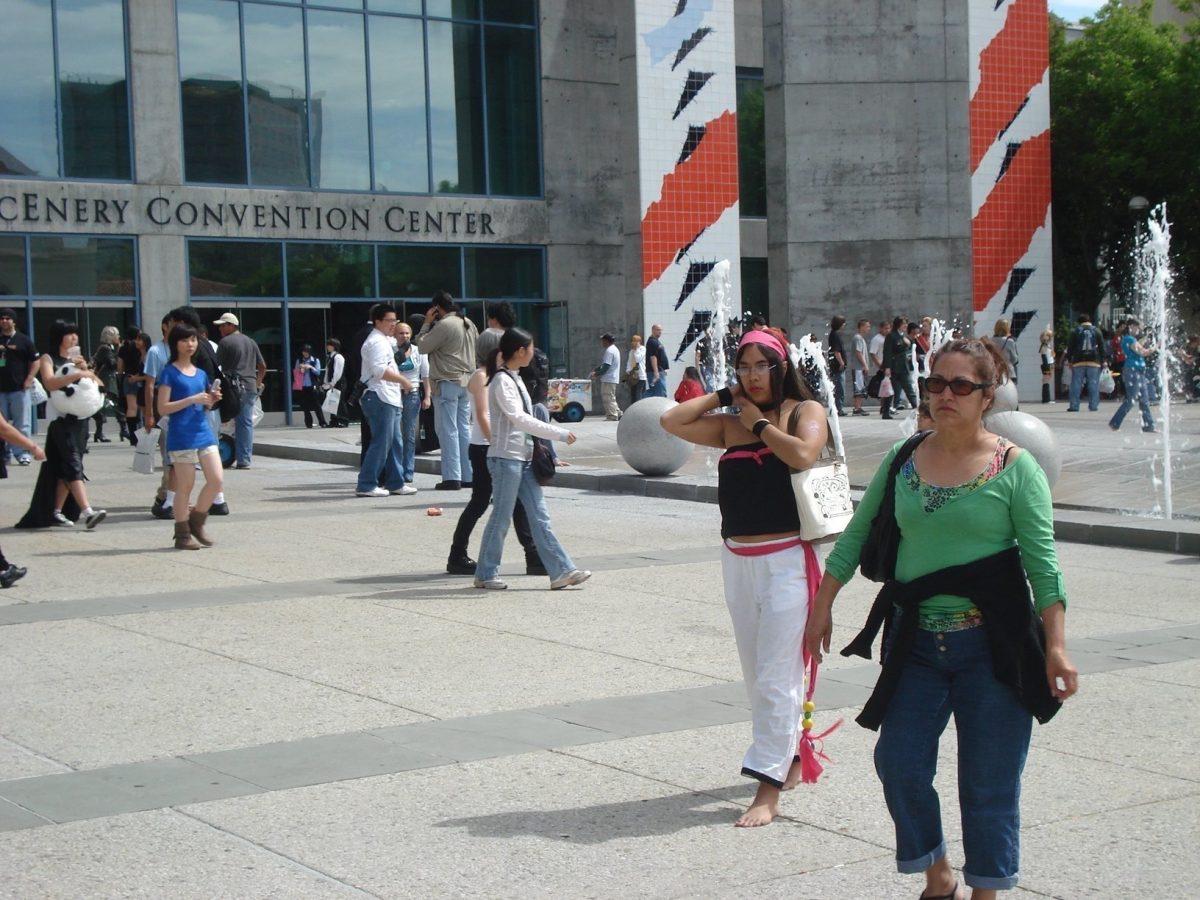‘Con-plague’ is known as a sickness someone can contract after attending a fan convention, a simple flu caused by large gatherings. But with the emergence of the coronavirus, large gatherings are the perfect place for the disease to spread.
The pandemic didn’t just cancel the hopes of fans coming together to celebrate the things they love, everything from sci-fi to anime to horror, it also hurt the wallets of people who profited from those events.
“There’s been cancellations left and right, and we’re pretty much out of an entire year’s worth of events at this point,” South Bay artist Crystal Poon said. “The conventions start ramping up in March and peak in the summer, when everyone’s out of school.”
The 27th annual FanimeCon, was set to take place this weekend at the San Jose Convention Center. But shelter-in-place orders have forced the convention to cancel.
Poon said she estimates she makes a couple of hundred dollars from events, so with the pandemic preventing large gatherings, she stands to lose this convention season.
The cancellation does not only have ramifications for the attendants and vendors like Poon, it also affects the local economy.
Like Poon, many who make their livelihoods at these conventions are suddenly left finding alternate means of income as events are canceled.
Poon has sold at convention artists’ alleys up and down California, prominently around Sacramento, San Jose and southern California.
She sells art prints, acrylic charms and screen prints of her own designs on t-shirts and bags, usually based on popular franchises like “Jojo’s Bizarre Adventure,” “Pokémon” and “Monster Hunter,” as well as some merchandise with her own original designs.
Last year, these sales were her main source of income, but she decided to work part-time, as she decided to pursue a career as a tattoo artist.
Although Poon has a job on the side and maintains an online storefront, she said times are tough for her and her partner.
Kai Kwong, a Bay Area illustrator, designer and printmaker, shares a screenprinting studio with Poon and also shares the same troubles.
Kwong sells apparel and stickers of her own design under the handle of ‘dollgirls.’
Like the rest of the world, she said she was blindsided by the COVID-19 pandemic.
“Yeah, to be honest I was just starting to see my con/event traction take off at the beginning of this year after a half-year of trying out tabling,” Kwong said over a Discord chat. “But now that basically all my events have been canceled thru the summer I’ve had to switch gears completely.”
She even said she prepared for the rush of summer conventions in advance by buying extra stock to sell such as blank shirts to add her designs, only to be left with surplus inventory.
“That’s my current predicament, I was producing maybe double what I would for events about 1-2 months away because my friend and I got accepted into [The Annex at Anime Expo],” Kwong said.
According to Anime Expo’s website, The Annex serves as a space to showcase creators’ designs alongside fashion brands from Japan, curated to feature only the most cutting-edge fashion and art.
Kwong also sells merchandise from her website, but even with a discount, she said she has doubts it will be enough to attract buyers.
“Even with a lower price a lot of folks are probably hesitant to spend money on non-essential stuff, especially with the current situation,” Kwong said.
Nelson Kuang, an artist who sells his art at conventions and digitally, was fortunate enough to land a full-time freelance job to support his lifestyle right before the pandemic hit.
Kuang saw a boost online, which he attributes to more self-promotion of his online store, as well as an increase in online shopping traffic during the pandemic.
However, the increase of online traffic does little to offset the loss of his convention sales.
Kuang estimates that at any of the conventions he vends at, he could make anywhere from $1,000 to $5,000.
Some event organizers are hosting virtual conventions with links to the artists’ shops for the people who lost money. Yet, some are unsure about the effectiveness of these digital artists’ alleys.
“Atmosphere totally matters. In a regular event I feel like people understand it’s a designated place and time to spend money on merch or gifts, or to enjoy a performance,” Kwong said. “When it’s a digital event during a time of crisis, I don’t think people are in the mindset to do that.”
Funimation, an American company dubbing and distributing anime titles, plans to hold its own digital convention early in July, but it’s still unsure what the event will look like. However, it is certain that the event will be online and free admission.
While this new convention style could help some like Kuang, who was lucky enough to land a full-time freelance job to support his lifestyle before the coronavirus, artists left in the wake of convention cancellations say they will still feel the effects for a while.
Despite some people’s doubts about whether the convention scene will ever return to normal after the pandemic ends, Kwong remains hopeful.
“Maybe it’s wishful thinking, but I have faith that conventions will regain their popularity again, Kwong said. “I do feel like it’ll take some time for people to feel ‘safe’ going to one, but once it’s been reestablished we might see a quick surge of people trying to experience cons after a long break.”






































